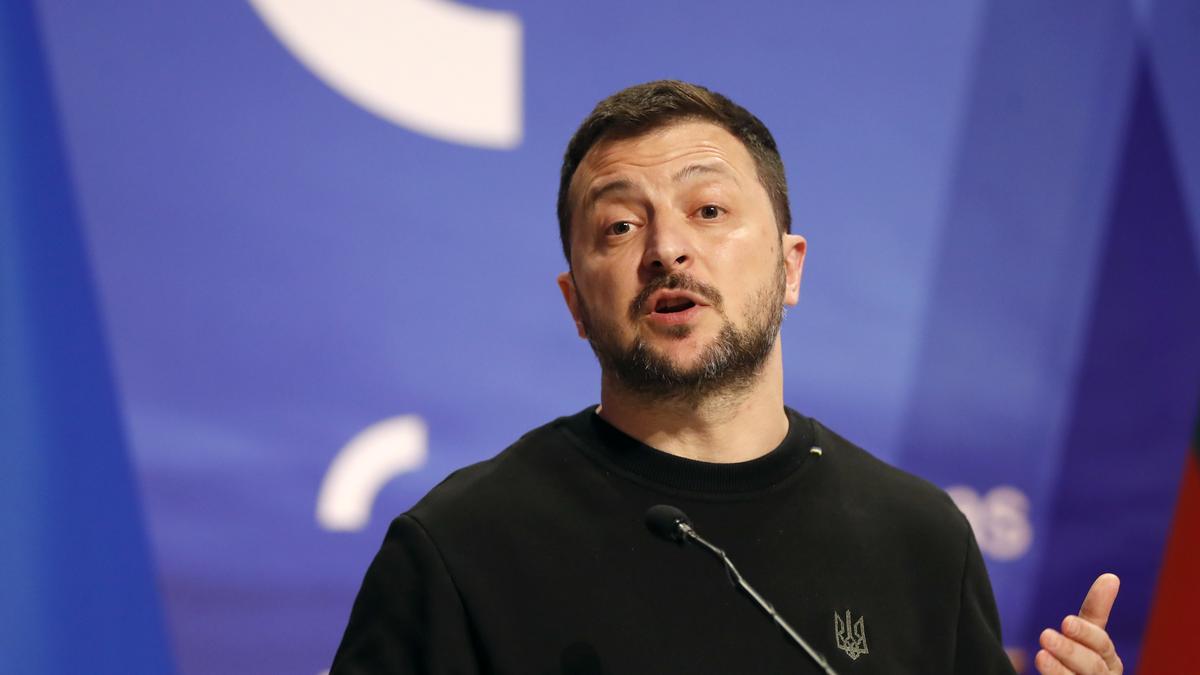 |
|
The ongoing conflict in Ukraine has reached a critical juncture, with President Volodymyr Zelensky expressing his desire to achieve a diplomatic resolution by the end of 2025. This statement comes amidst a backdrop of escalating tensions, the looming possibility of Donald Trump's return to the White House, and the unexpected intervention of North Korea. The timing is significant, as February 2025 will mark the third anniversary of Russia's invasion, a period marked by fluctuating battlefield dynamics and significant losses for both sides. Russia, having made recent territorial gains against a struggling Ukrainian army, appears entrenched in its position. The potential shift in US policy under a second Trump administration adds a layer of unpredictable complexity to the situation. Trump's past criticism of US military aid to Ukraine has raised concerns about a potential decrease in crucial support for Kyiv, potentially weakening its negotiating position and emboldening Russia.
The involvement of North Korea represents a dramatic escalation of the conflict, extending its geopolitical ramifications far beyond Europe. Reports from Western officials indicate that thousands of North Korean soldiers are actively supporting Russian forces in the Kursk region, a critical area where Ukraine has recently launched counteroffensives. This unprecedented military cooperation between Russia and North Korea solidifies an already strong alliance, raising concerns about the potential for further escalation and the global implications of this partnership. The deployment of North Korean troops highlights the far-reaching consequences of the war, drawing in states from across the globe and potentially influencing regional stability in East Asia. South Korea and Japan have strongly condemned North Korea's actions, expressing concern over the destabilizing impact on regional security and pledging continued support for Ukraine.
The recent phone call between Russian President Vladimir Putin and German Chancellor Olaf Scholz further underscores the complex diplomatic landscape surrounding the conflict. Despite Ukraine's objections, Scholz initiated the conversation, prompting accusations from Kyiv of appeasement and an attempt to minimize Putin's isolation. While Scholz reportedly condemned Russia's aggression and urged a negotiated settlement, the call nevertheless provided Putin with a platform for his demands, including the surrender of occupied Ukrainian territories – a condition Zelensky has firmly rejected. This incident highlights the challenges in forging a unified Western front and the divergent approaches to negotiating with Russia. The G7, while affirming its commitment to supporting Ukraine, has also pointed to Russia as the sole impediment to peace, maintaining a stance of resolute support for Ukraine's sovereignty and territorial integrity.
The internal dynamics within Western countries are also adding to the complexities of the situation. Scholz's call with Putin faced domestic criticism, with accusations of handing Putin a propaganda victory. This internal division underscores the challenges faced by Western leaders in balancing the need for dialogue with the imperative to stand firm against Russian aggression. Maintaining a united front in the face of domestic pressures and differing opinions on the best approach to peace negotiations presents a significant challenge to the West’s effectiveness. The conflicting approaches to dealing with Putin highlight the delicate balance between seeking a diplomatic solution and maintaining pressure on Russia to end the hostilities and comply with international law.
Zelensky's statement expressing a desire for a diplomatic resolution by 2025 underscores the urgency of finding a path towards peace. However, the current circumstances – including the potential changes in US policy under a Trump presidency, the involvement of North Korea, and Russia's unwavering demands for territorial concessions – indicate that achieving this goal will require considerable diplomatic skill and a high level of international cooperation. The coming months will be crucial in shaping the trajectory of the conflict and determining whether a negotiated settlement can be reached before the third anniversary of the invasion. The international community faces a significant task in navigating the complexities of this conflict and finding a way to achieve lasting peace in Ukraine. The stakes are high, and the consequences of failure could be far-reaching and profoundly destabilizing.
Source: Ukraine's Zelensky says wants to end war by diplomacy next year
